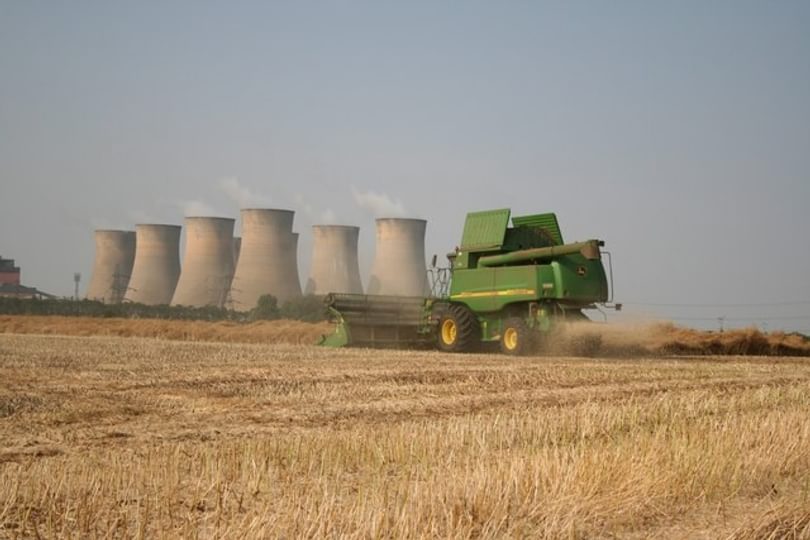
A major study into how Britain’s entire food system must change to keep food affordable without destroying nature, at a time of soaring world population growth, was unveiled today with the publication of the Green Food Project’s initial report.
The Green Food Project is an initiative of the UK Government’s Department for Environment, Food and Rural Affairs (DEFRA), and has brought together senior representatives from government, farming and food sectors, the service industry and the environmental sector to reconcile the competing demands of producing more food and improving the environment. Professor Charles Godfray, Director of the Oxford Martin Programme on the Future of Food, sits on the Project Steering Committee and chairs its Synthesis Subgroup.
The Project set up a series of subgroups to examine how production and consumption could change in the future in four different sectors – wheat, dairy, bread and curry, with a fifth subgroup exploring cross-cutting issues in a number of geographical areas.
Earlier this month, the Project opened a call for public opinions on the future of food production and the environment in England; the challenges ahead, and the solutions. It is part of the Government’s new approach to develop policy jointly with industry and civil society at a much earlier stage, the steering group will now meet regularly to bring about change. (Read our blog on ‘Green food – have you had your say?’)
This initial project report sets out the first steps on the road to: using less energy and water in food production; increasing crop yields; introducing more innovative technology; improving conservation management; and boosting numbers of talented, entrepreneurial young people making careers in the food industry. The report also:
- explores the need for more research into sustainable approaches to food production and processing, as well as to how we evaluate ecosystem services;
- highlights the importance of translating research and spreading best practice, and the importance of facilitating investment in the food sector;
- argues that a more geographically nuanced approach to policy may deliver both better economic and environmental outcomes; and finally,
- stresses the importance of changing consumption patterns, although detailed exploration of this is left to the future.
On releasing the findings from the report, Farming Minister Jim Paice said:
“With our increasingly hungry world every country must play its part to produce more food and improve the environment. Britain already punches above its weight, but we’re a small island with limited space, so we’ve got to show leadership and play to our strengths more efficiently.
“We’re not talking about setting Soviet-style targets but an overall approach in which the whole food chain pulls together. Whether it means embracing new farming technology or people wasting less, we’ve got to become more sustainable.”
The project follows predictions that a sharp rise in population, obesity, and western diets over coming decades will bring unprecedented demand for food and pressure on land and water.
The Government’s Foresight report into food security, which was co-authored by Charles Godfray and published in January 2011, estimated that by 2050 the world’s population will increase to over nine billion – up from seven billion today – and food production will need to increase significantly. It also estimated that between 30 to 50 per cent of all food grown worldwide may be wasted.
Links for further information:
- Blog: Green Food – Have you had your say?
- Webpage: Oxford Martin Programme on the Future of Food
- Biography: Professor Charles Godfray
- Report: The Green Food Project (pdf)
- Report: Future of Food and Farming (external site)